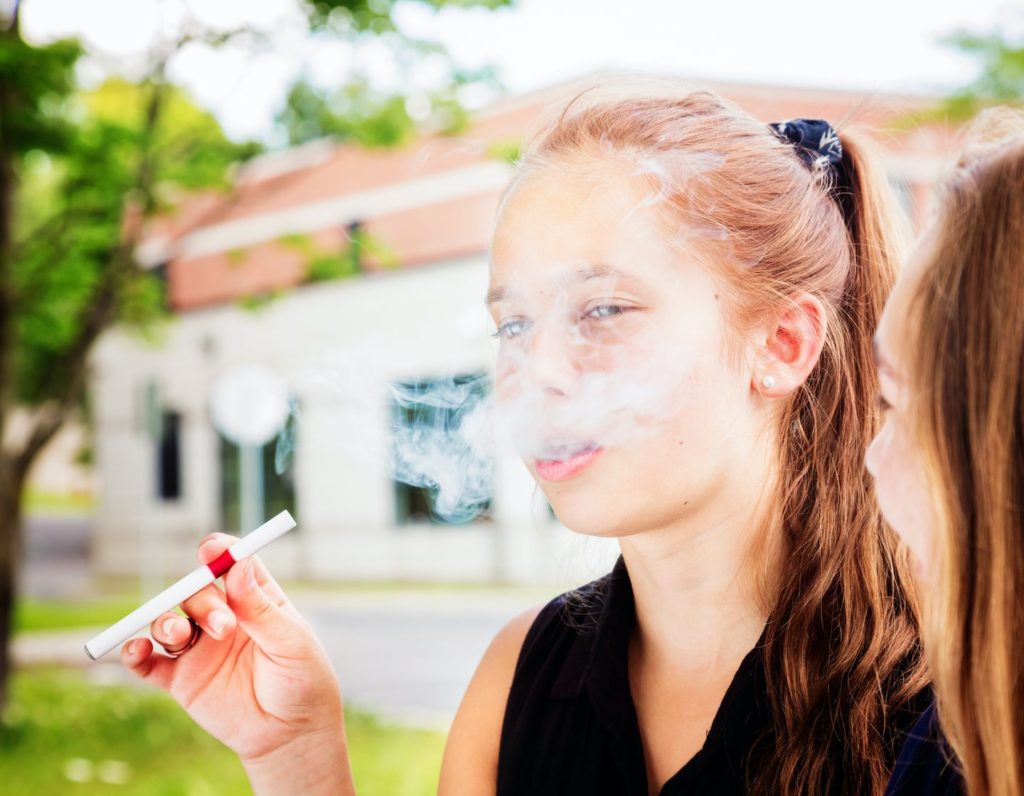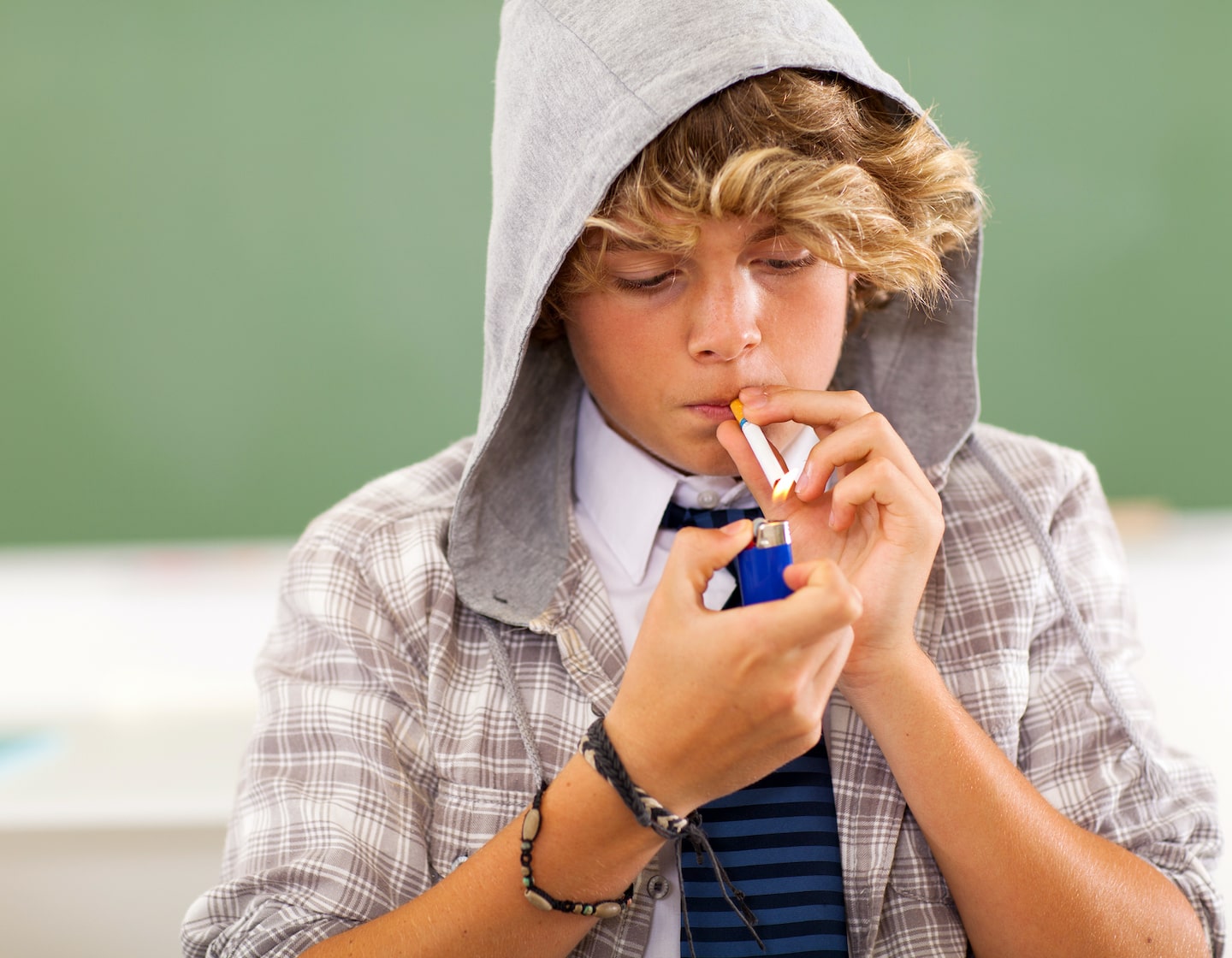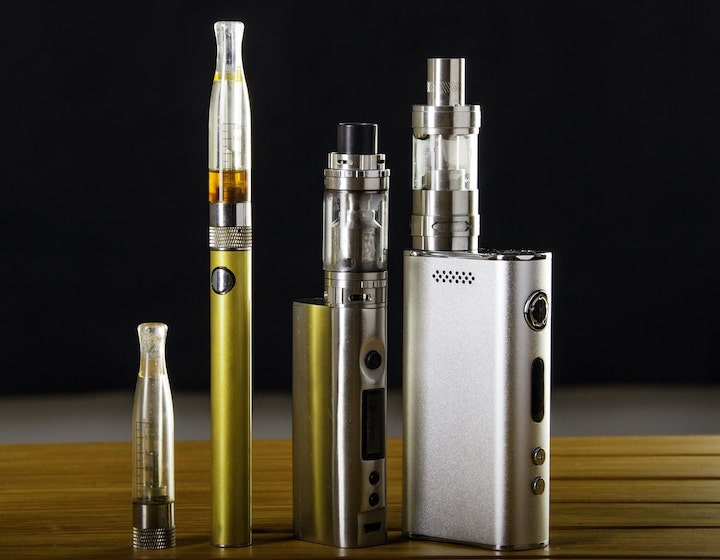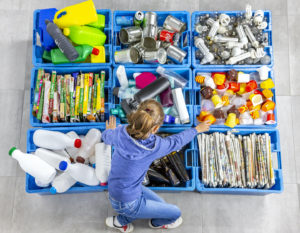
 Post Category - ParentingParenting - Post Category - Older KidsOlder Kids
Post Category - ParentingParenting - Post Category - Older KidsOlder KidsHow would you know if your child was doing anything risky (and illegal) that may cause them significant harm (like vaping, smoking or downloading porn)? Are there any tale-tell signs to look for?
Are you worried that your child might be vaping (which is on the rise in Singapore despite being illegal), downloading porn or doing anything else illegal or risky? And what exactly is ‘normal risk-taking’ behaviour in older kids? So many questions for us worried parents, so we are turning to a highly sought-after expert, Dr Neil Forrest at Osler Health International who sees many teens to discuss issues they may be struggling with.
What are some of the risky behaviours commonly seen in kids?
Common risky behaviours in young people include smoking, dangerous driving, underage alcohol use, truancy, fighting and other illegal activities like drug use, vaping, vandalism and trespassing. In recent years there has of course been an increase in online risk-taking such as ‘sexting.’ Clearly these behaviours can be detrimental to school performance, mental wellbeing, family relationships and life opportunities.
In the case of illegal activities, the consequences in Singapore can be severe and life-changing.

Are you seeing risky behaviour in younger and younger kids?
No. Risk-taking behaviour is normal and common in young people and this has always been the case. What has changed is the type of behaviours I see in younger children. Children are exposed to different influences, especially online, and so it’s true that there are a small proportion of pre-adolescents who will demonstrate more ‘grown-up’ risk-taking.
Why do kids engage in risky behaviour?
Taking risks is an essential part of childhood and adolescence. It is the way children test moral and social boundaries, learn to face mortality, and establish social norms and rules. Parents and societies which suppress risk-taking in children, or try to eradicate any risk from the environment, end up raising children who find it difficult to face uncertainty, demonstrate less creativity and have dysfunctional interactions with the world around them.
What are the key signs parents should watch for that may mean dangerous risky behaviour is being sought?
Parents should not be worried about risk-taking behaviour per se. Where parents have a role is to protect their children from sustaining significant harm, be it physical, mental or social. Of particular concern is the use of harmful substances, online abuse, or illegal behaviour. Through the teenage years, we are supposed to develop the ability to think about the consequences of our decisions and make the gradual transition to adult behaviour. For example, I believe it would be excessive to stop my child from skateboarding in order to prevent them from getting injured, but I think it is reasonable for me to insist that they wear a helmet while doing so!

Should parents look through kids’ possessions to ensure they are not downloading porn, possessing vapes etc or just talk to kids and hope they are honest?
If you police your kids’ behaviour by consent, rather than fear, you are more likely to maintain a good relationship with them, more likely to raise agreeable children and more likely to be listened to! Having said that, this requires the young person to reciprocate with honesty. Ultimately you are responsible, both legally and morally for your kids, and young people need the structure of knowing that their parents are in charge and obeying rules and boundaries. It is reasonable to search your child’s possessions if you believe them to be in possession of something illegal, but it should probably be a last resort. Equally, it’s also fine to have parental internet controls, but remember that young people have always found ways to circumvent their parent’s restrictions!
Read More: How to Have HONEST Conversations with your Teens
It’s not possible for parents to choose their kids’ friends – is having the ‘right’ friends the most important factor?
Yes, we’d all like to choose our kids’ friends for them but this would deny them the ability to be exposed to different types of relationships and behaviours. Many young people act out risk-taking in order to impress or win validation from their peers. If you fear that a friendship group is taking your child down the wrong path, it is OK to stop your child from seeing these friends, but be prepared for a lot of conflict along the way. Clearly this should only be imposed in extreme circumstances. If you develop a close and strong relationship with your child, they will be more likely to confide in you when they face difficulties. Seeing your child let down or betrayed by a friend can be distressing, but these are also formative experiences which will build resilient adults.
How do parents allow their kids freedom to be independent while keeping a connection and monitoring them to keep them safe?
Teenagers in particular need to experience the thrill of risk-taking. Try to channel this energy into something constructive like martial arts, parkour, rock-climbing or skateboarding. Many human and animal studies show that there is an important link between risk-taking and creativity, so giving your kids a creative outlet such as art or drama may reduce risky behaviour.
Sometimes the best thing we can do as parents is to try to let go of some of our own fears and allow our kids to find their own feet – this is hard! One non-negotiable rule should be to know where your kids are. You can’t always know exactly what they’re doing but you should always be able to find them and they should always have a way of contacting you.
In cases of illegal activity (underage drinking, drug use etc) you have the law on your side. There are clear boundaries and you should establish rules for your kids that come with consequences if they are broken. It is important that we as parents model good behaviours in our own lives as we are the biggest influences on our children. Having conversations about values and what constitutes acceptable behaviour is also something we should all be doing. The younger you start with this the easier it will be to maintain!
Read More: Activities to Keep Teens Busy
What’s THE most important piece of advice you would give parents?
There is no perfect answer to parenting! Striking the balance between letting your kids develop properly AND keeping them safe is a huge challenge and both you and your kids will make mistakes along the way. You are there to support and guide your kids, and sometimes this will require conflict and ‘laying down the law’. I see a lot of parents trying too hard to be friends rather than parents to their children. Making this distinction, and being a parent first, would be my number one piece of advice!
Thanks so much for your words of wisdom Dr Forrest!






 View All
View All




 View All
View All









 View All
View All






